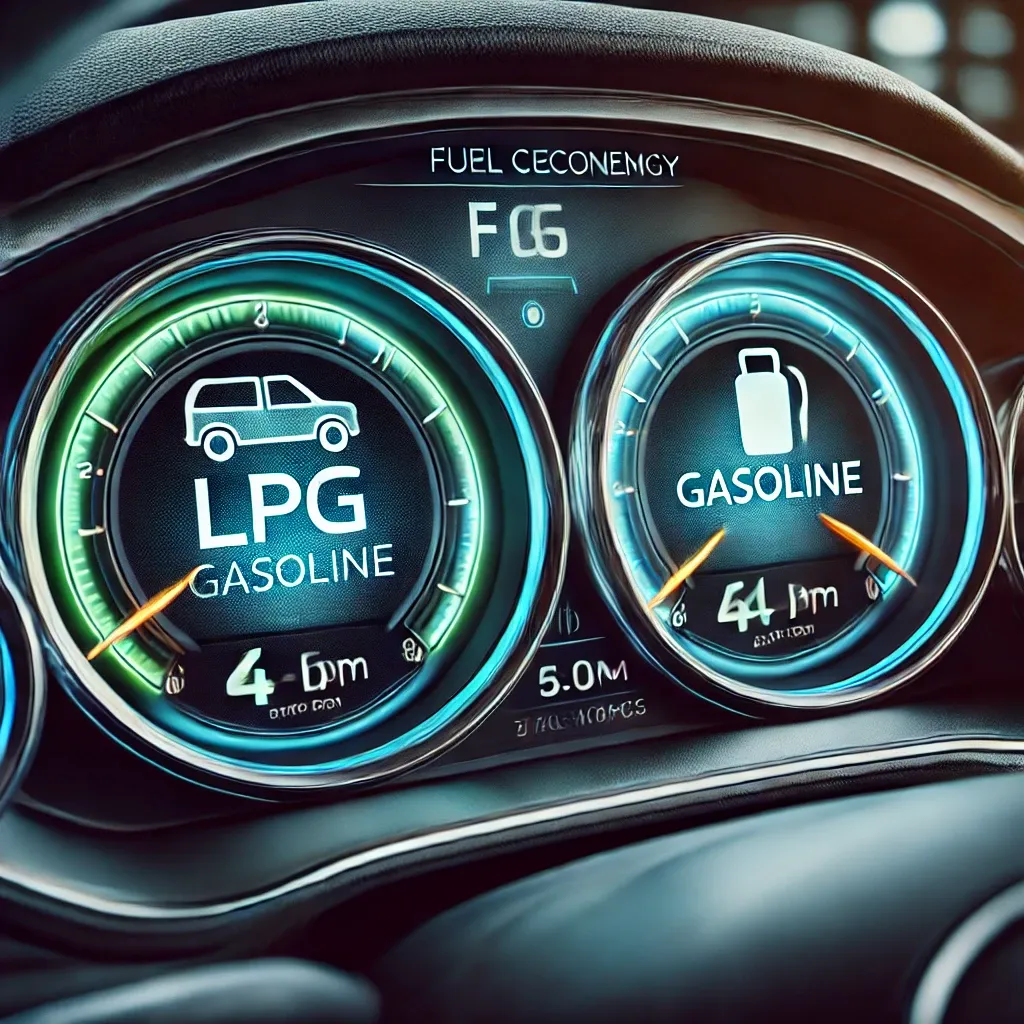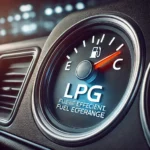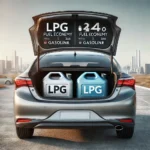Curious about the differences between LPG and gasoline fuel economy? How do they compare in terms of cost, efficiency, and environmental impact? Read on to find out the essential factors influencing LPG gasoline fuel economy.
Fuel economy is a crucial consideration for drivers, especially with rising fuel costs and environmental concerns. The choice of fuel can significantly impact both the wallet and the environment. Among the different types of fuel, LPG (liquefied petroleum gas) is increasingly being used as an alternative to gasoline. But how does LPG fuel economy stack up when compared to traditional gasoline? In this article, we will explore the various aspects of LPG gasoline fuel economy, including a direct comparison and analysis of differences between the two fuel types.
LPG Fuel Economy via Gasoline: The Basics
When considering LPG as an alternative to gasoline, many drivers wonder about the fuel economy differences. The term “fuel economy” refers to how efficiently a vehicle uses fuel to travel a certain distance, typically measured in miles per gallon (MPG) or kilometers per liter (km/l).
LPG is often touted as a more environmentally friendly option compared to gasoline. However, what does this mean in terms of fuel economy?
Here are some key points to consider about LPG’s fuel economy when used instead of gasoline:
-
Energy Density LPG has a lower energy density than gasoline, meaning that LPG vehicles require more fuel to travel the same distance. On average, LPG cars consume about 10-15% more fuel than their gasoline counterparts for the same trip.
-
Fuel Cost Although LPG is typically cheaper than gasoline, the increased consumption can sometimes offset these savings. However, in the long run, the reduced cost per liter of LPG can still result in lower overall fuel expenses.
-
Environmental Benefits LPG produces fewer emissions than gasoline, including lower levels of harmful substances like carbon monoxide and nitrogen oxides, making it a cleaner option for the environment.
-
Vehicle Performance Many LPG vehicles are designed to perform similarly to gasoline vehicles, although slight differences in power output may be noticeable, depending on the engine’s setup.
For drivers considering LPG as an alternative to gasoline, the overall savings can be substantial, even with the higher fuel consumption rate.
💡 Learn more about LPG vs Gasoline fuel economy 💡
LPG Gasoline Fuel Economy: A Direct Comparison
To fully understand the difference in fuel economy between LPG and gasoline, let’s examine them side by side. While both fuels power vehicles, they have distinct characteristics that affect efficiency. Here’s a direct comparison between LPG and gasoline in terms of fuel economy:
-
Miles per Gallon (MPG) Gasoline-powered vehicles typically offer a range of 20-30 MPG, depending on the make and model. LPG-powered vehicles, however, generally achieve about 10-15% fewer miles per gallon, as the energy content of LPG is lower.
-
Fuel Economy Costs Despite the lower MPG of LPG, the price per liter is usually significantly lower than gasoline. Depending on the region, LPG can cost up to 50% less than gasoline, making it an attractive option for budget-conscious drivers.
-
Driving Range Due to the lower energy density of LPG, vehicles running on LPG may have a reduced driving range compared to gasoline vehicles. However, this can be mitigated by dual-fuel systems, which allow vehicles to switch between LPG and gasoline depending on availability.
-
Engine Compatibility Some vehicles are designed specifically to run on LPG, while others can use a combination of LPG and gasoline. Dual-fuel systems provide flexibility, but the fuel economy may vary depending on how often the car switches between the two fuels.
Ultimately, the decision between LPG and gasoline depends on individual preferences. If cost-saving and environmental concerns are prioritized, LPG can be a worthwhile choice, though it may require more frequent fueling compared to gasoline.
📊 Explore more on LPG gasoline comparison 📊
LPG Gasoline Fuel Economy Difference: What You Need to Know
The difference in fuel economy between LPG and gasoline is influenced by several factors, including vehicle type, driving habits, and fuel prices. Here are some critical insights on the differences between LPG and gasoline fuel economy:
-
Fuel Efficiency Loss As mentioned earlier, LPG has a lower energy content than gasoline. This results in a decrease in fuel efficiency when using LPG. A car running on LPG might need to stop for fuel more frequently than a gasoline vehicle, especially on long trips.
-
Cost Per Mile Despite the lower fuel efficiency, the cost per mile driven in an LPG vehicle is often lower due to the cheaper price of LPG. This is a crucial factor for drivers who cover long distances regularly, as LPG can significantly reduce fuel expenditure over time.
-
Maintenance Costs LPG systems can sometimes incur higher maintenance costs due to the need for specialized equipment, such as tanks and fuel lines. However, the overall cost of running an LPG vehicle still tends to be lower, especially if the vehicle is used for high-mileage driving.
-
Resale Value Gasoline-powered vehicles tend to have higher resale values compared to LPG vehicles. This can be a consideration for those who plan on selling their cars after a few years.
In summary, while LPG vehicles might offer a lower upfront fuel cost, they may require more maintenance and have a reduced driving range due to lower energy density. However, for environmentally conscious drivers, the emissions reduction may make LPG an attractive option despite these drawbacks.
🔍 Find out more about LPG fuel economy differences 🔍
Conclusion
In conclusion, the comparison between LPG and gasoline fuel economy reveals several key differences. While LPG vehicles tend to consume more fuel due to the lower energy density, they offer significant environmental benefits and cost savings in terms of fuel prices. For drivers who prioritize eco-friendliness and want to save on fuel costs, LPG can be a viable alternative to gasoline, despite the slight reduction in fuel efficiency.
Ultimately, the decision between LPG and gasoline depends on a variety of factors, including driving habits, fuel prices, and long-term savings. Understanding the key differences in fuel economy can help you make a more informed choice about which fuel type is right for your needs.






